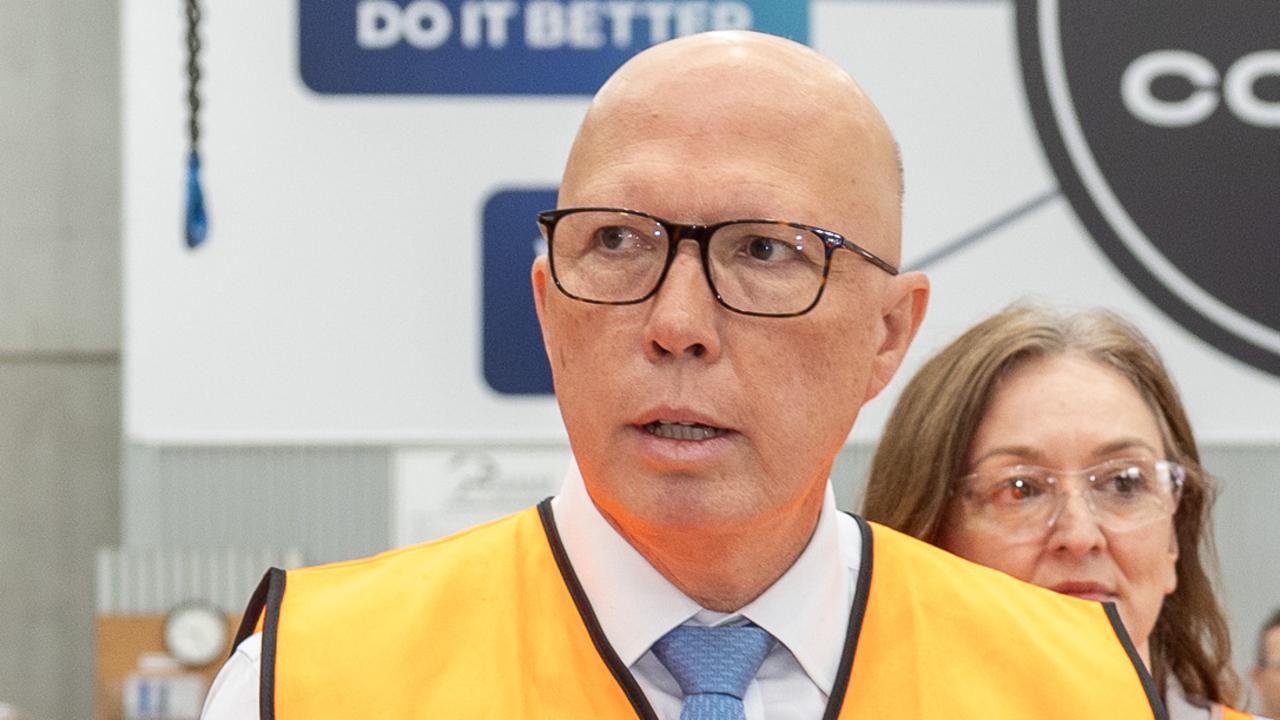What Donald Trump’s ‘Liberation Day’ tariffs mean for Australia
If you’re an Aussie with a mortgage, Donald Trump’s massive new tariffs could impact you in a surprising way.

An economic bloodbath is unfolding around the world after Donald Trump’s sweeping new tariff move — but it could impact your mortagage in a surprising way.
Almost $60 billion has been wiped off the Australian stock markets in just one hour this morning and Asian markets are facing a similiar hammering.
Investors are in shock as Mr Trump’s tariffs are higher than many were expecting. And there is still more sectoral tariffs to come, including on pharmaceuticals.
AMP economist Shane Oliver said the risk of a US recession is now higher – via a further blow to confidence and supply chain disruptions – and a bigger hit to global growth.
“The risk of a US recession is probably now around 40 per cent and global growth could be pushed towards 2 per cent (from around 3 per cent currently) depending on how significant retaliation is and how countries like China respond with policy stimulus,” he said.
He said the real risk to Australia comes not directly from tariffs on our exports — but from the threat to global growth, particularly in China and Asia, which will likely result in less demand for our exports.
One bit of good news for Aussies is that the tariffs may lead to more rate cuts.
“Assuming that Australia does not retaliate and the $A does not crash then Trump’s tariffs pose more of a threat to growth than causing higher inflation here and so add to the case for more RBA rate cuts,” he said.
The Australian share market sank on the opening bell, wiping $60 billion off the market.
What tariff hike means for Australia
Australia will face 10 per cent reciprocal tariffs, apparently at the new minimum base rate without any discount, Mr Trump has announced.
A tariff is a a form of tax that a government puts on goods imported from another country. It makes those goods more expensive, which can help US businesses compete with foreign products.
Australia makes billions of dollars by exporting goods to the US, and some industries will cop it because of the new tariffs.
“For Australia the 10 per cent tariff is bad news for the industries affected,” Mr Oliver said. “Pharmaceuticals (worth $2bn a year) are not currently included but look likely to see their own tariff down the track. However, only 5 per cent of Australian exports go to the US worth about 0.9 per cent of GDP and much of this will still continue albeit they are now more expensive in the US.”
The biggest Aussie export to the US is meat. Last year we shipped $4 billion (all figures in US dollars) of meat across the Pacific.
The second biggest export is pearls, precious stones and metals, worth $2 billion. Pharmaceutical products are the third biggest export, worth $1.4 billion.
Optical, photo, technical, medical apparatus makes up $1.2 billion. Machinery, nuclear reactors and boilers make up $1.2 billion.
Electrical and electronic equipment make up $686 million. Aircraft and spacecraft make up $663 million.
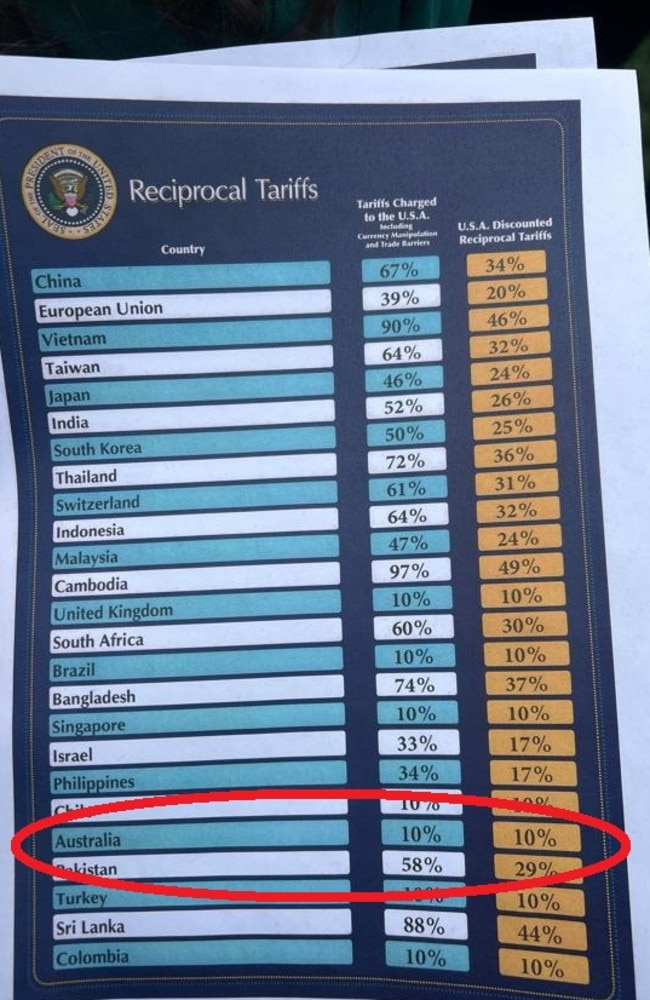
The US President unveiled his long-awaited “Liberation Day” tariff naughty list on Thursday morning, declaring an end to American taxpayers being “ripped off”.
Under the 2005 Australia-United States Free Trade Agreement (AUSFTA), “more than 97 per cent of Australia’s non-agricultural exports to the United States (excluding textiles and clothing) became duty free and two-thirds of agricultural tariff lines went to zero”, per DFAT.
Senior Australian government sources confirmed to news.com.au they are now expecting a 10 per cent tariff on all Australian exports.
However, Mr Trump has signalled tougher barriers for Aussie beef without providing details.
“We are expecting 10 per cent across the board unless the executive orders say otherwise,” a government source said.
While airing his grievances on agricultural trade barriers, the President described Australians as “wonderful people, and wonderful everything, but they ban American beef”.
“Yet we imported $3 billion of Australian beef from them just last year alone,” Mr Trump said.
“They won’t take any of our beef. They don’t want it because they don’t want it to affect their farmers and, you know, I don’t blame them but (we’re) doing the same thing right now starting at midnight tonight, I would say.”
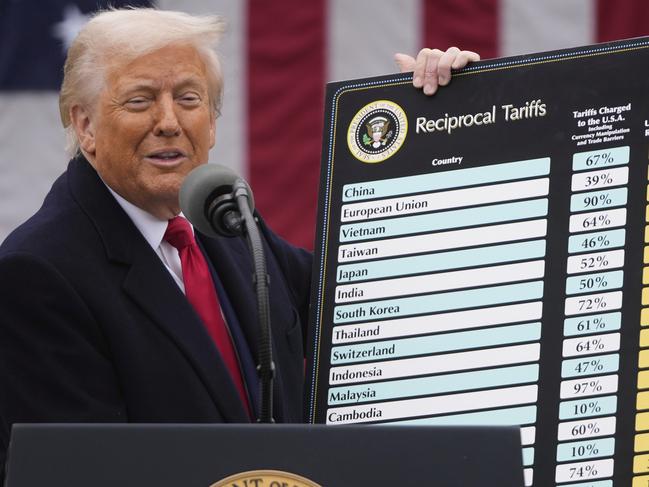
‘Not the act of a friend’: PM’s fury
Responding to the tariffs at a press conference on Thursday morning, Prime Minister Anthony Albanese said the tariffs are “not unexpected, but let me be clear, they are totally unwarranted”, adding they are “not the act of a friend”.
Australia will not impose reciprocal tariffs on the US, Mr Albanese said.
“President Trump referred to reciprocal tariffs – a reciprocal tariff would be zero, not 10 per cent,” he told reporters.
“The administration’s tariffs have no basis in logic and they go against the basis of our two nations’ partnership. This is not the act of a friend. Today’s decision will add to uncertainty in the global economy and it will push up costs for American households. It is the American people who will pay the biggest price for these unjustified tariffs.
“This is why our government will not be seeking to impose reciprocal tariffs. We will not join a race to the bottom that leads to higher prices and slower growth. We will stand up for Australia. We will continue to make the strongest case for these unjustified tariffs to be removed from our exporters.
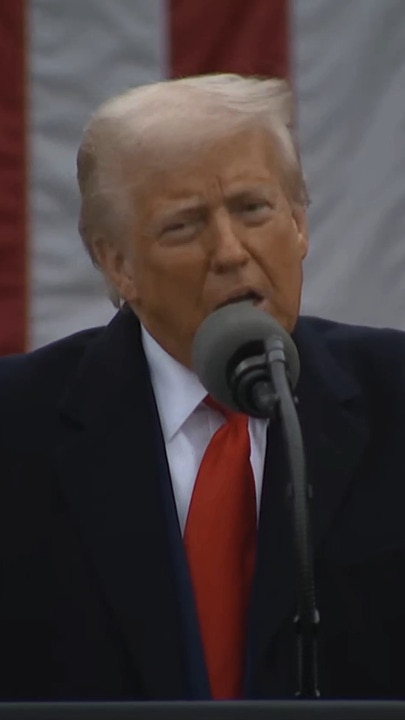
“Our existing Free Trade Agreement with the United States contains dispute resolution mechanisms. We want to resolve this issue without resorting to using these, as we do support continued constructive engagement with our friends in the United States.
“Our shared history, our friendship, our alliance, these are all bigger than a poor decision. But the Australian people have every right to view this action by the Trump administration as undermining our free and fair trading relationship and contrary to the shared values that have always been at the heart of our two nations’ longstanding friendship.”
Australia’s restrictions on US beef aren’t going anywhere, the Prime Minister said.
“We have made it very clear to the United States that we will not compromise on biosecurity,” he said.
“We will not weaken the measures that protect our farmers and producers from the risks of disease or contamination. Indeed we have made it a priority to strengthen biosecurity because one of the things that makes Australian food … the best in the world is that people everywhere know that it stands for quality, but also stands for safety.”
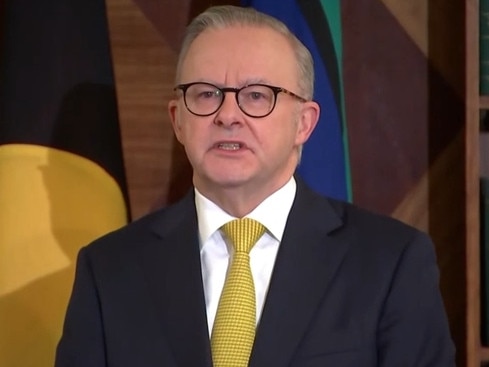
Tariffs will cause ‘influx of displaced goods’ in Australia
Business Council Chief Executive Bran Black said these tariffs would hurt economic growth but urged a measured response, recognising the importance of free trade to our prosperity.
“The United States is a longstanding friend and ally and we’ve historically stood together through thick and thin, and so every Australian should be disappointed by these tariffs,” Mr Black said.
“We don’t support retaliatory tariffs and strongly urge against them, because there are no winners in a trade war, which would only risk making our situation worse by forcing Australians to pay more and reducing job security.
“As a trading nation, free and open access to global markets is critical for Australia, especially as one in every four of our nation’s jobs relies on trade.”
The tariffs will lead to the dumping of manufactured goods across the rest of the world, Australian Industry Group chief executive Innes Willox warned, including in Australia.
“Goods destined for the US may likely need to find a new home, raising the prospect of an influx of displaced goods coming to Australia,” Mr Willox said.
“More than ever, we need a transparent and robust anti-dumping system to work in the legitimate interests of Australian Industry.”
Decision is ‘a step backward’, farmers say
Australia’s biggest beef export market in the 2023-24 financial year was the US, when the value of total beef exports hit a record $14.68 billion.
“The strongest growth was seen in the United States, where exports lifted 60 per cent to 394,716 tonnes, and South-East Asia, where exports lifted 33 per cent to 177,684 tonnes,” Meat and Livestock Australia (MLA) reported in March.
Prior to Mr Trump’s announcement, Australian exporters could export 448,214 tonnes of beef to the US at a zero tariff rate.
National Farmers’ Federation (NFF) President David Jochinke described the tariff decision as a “disappointing step backward for our nations and for the global economy”.
“The Australian agricultural industry supports a considered and measured approach to negotiations with the United States and will work closely with the Government and all sides of politics to seek a resolution to this issue,” Mr Jochinke said.
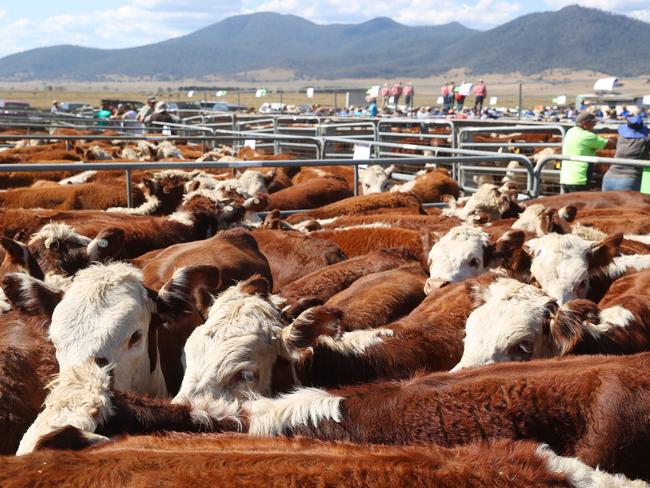
“The NFF has long championed free and fair trade, not just for agriculture but all industries, recognising its role in global economic growth and stability. Australian agriculture is unwavering in its commitment to this.
“Australian producers are resilient in the face of challenges. Being among the least subsidised farmers in the world has seen the sector become highly efficient and productive.
“While this decision creates unnecessary uncertainty, we remain confident in the strength of Australian agriculture. Our products are sought after worldwide for their quality, sustainability, and reliability.”
The Red Meat Advisory Council (RMAC) and its members said it was similarly disappointed by the tariffs set to be imposed on red meat exports destined for the US.
The move, RMAC Chair John McKillop said, failed to recognise that Australian red meat contributes to stable food supplies and prices in the US.
“While Australian meat exports will shortly be subjected to a 10% tariff, there is no ban on Australian red meat and our trade with the US will continue,” Mr McKillop said.
“However, it remains a disappointing decision from the US, in stark contrast to our 20-year partnership under the Australia-United States Free Trade Agreement (AUSFTA).”
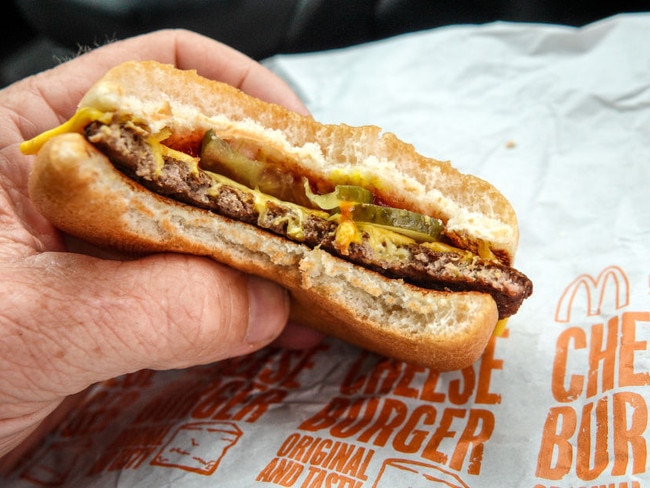
CEO of northern NSW-based Northern Meat Cooperative, Simon Stahl, told ABC News Breakfast the tariffs were “significant” for the Australian beef industry.
“It’s our largest market at present, and will continue to be for some time,” Mr Stahl said.
“The US herders are at probably 70 year lows, so demand for Australian beef is at a record.”
Exploring other markets, Mr Stahl said, is “the opportunity”.
“We got the best product in the world and if you look at – you mentioned (the European Union), we failed to get an EU Free Trade Agreement,” he said.
“That’s on the cards. The EU loves the beef and pay well for the beef. So huge opportunities.”
Australia has previously warned it could drive up the price of the President’s beloved cheeseburgers in the US.
“The significance, of course, to the US about our beef exports is that most of it goes into McDonald’s hamburgers,” Trade Minister Don Farrell said.
“If you push up the price of those beef exports by 25 per cent or 10 per cent or whatever the figure is, then you push up the price of hamburgers.”
“It doesn’t make any sense.”
The US complaints against Australia include the fact Australia requires completion of a complex approval process before it will permit the importation of bovine products from a country that has reported any cases of Mad Cow disease.
“Australia’s market remains closed to fresh US beef and beef products,’’ the US report states.
“The United States and Australia held a series of technical discussions to address outstanding differences, and the United States continues to seek full market access for fresh US beef and beef products.”
Originally published as What Donald Trump’s ‘Liberation Day’ tariffs mean for Australia


